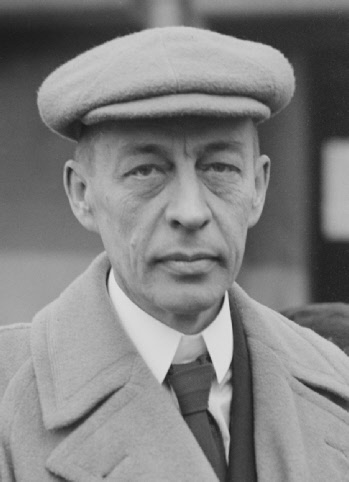
Sergei Vasilievich Rachmaninoff (2 April 1873 – 28 March 1943) was a Russian composer, pianist, and conductor. Rachmaninoff is widely considered one of the finest pianists of his day and, as a composer, one of the last great representatives of Romanticism in Russian classical music.
Early influences of Tchaikovsky, Rimsky-
Rachmaninoff wrote five works for piano and orchestra: four concertos—No. 1 in F-
Rachmaninoff also composed a number of works for orchestra alone. The three symphonies: No. 1 in D minor, Op. 13 (1895), No. 2 in E minor, Op. 27 (1907), and No. 3 in A minor, Op. 44 (1935–36). Widely spaced chronologically, the symphonies represent three distinct phases in his compositional development. The Second has been the most popular of the three since its first performance. Other orchestral works include The Rock (Op. 7), Caprice bohémien (Op. 12), The Isle of the Dead (Op. 29), and the Symphonic Dances (Op. 45).
Rachmaninoff wrote two major a cappella choral works—the Liturgy of St. John Chrysostom
and the All-
He completed three operas, all short: Aleko (1892), The Miserly Knight (1903), and Francesca da Rimini (1904).